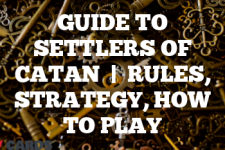Imperial: Unbeatable Strategy, Rules & Winning Instructions
Introduction
Imperial is a board game that combines strategy, economics, and diplomacy in a unique blend that keeps players engaged from start to finish. The game is set in the era of the European empires, where players take on the roles of international investors, seeking to exert influence over six great powers of Europe. The game was designed by Mac Gerdts and first published in 2006. To play Imperial, you will need the game board, bond cards, nation markers, flag tokens, factories, armies, fleets, and money in the form of millions.

Rules for playing Imperial
The rules of Imperial are straightforward yet offer a depth of strategy that makes every game unique. The official rules dictate that players do not represent a specific nation. Instead, they are investors who can influence different nations by buying bonds. The player who controls the most bonds of a nation controls that nation and makes decisions on its behalf. However, house rules can be introduced to add variations to the game, such as limiting the number of bonds a player can hold.
How do you play Imperial
- Setup: Each player starts with 2 million in cash and chooses a home country. The game board is set up with the nation markers placed on their respective starting positions.
- Gameplay: Players take turns in clockwise order. On a player’s turn, they can either buy a bond, order a nation to build factories, armies, or fleets, or move units on the board. The goal is to amass wealth and influence over the nations.
- End of the Game: The game ends when one nation has all its bond cards bought or when a nation reaches the “End” space on the rondel. The player with the most money, including the value of their bonds, wins the game.
How to Win at Imperial
Winning at Imperial requires a blend of strategic planning, careful investment, and tactical maneuvering. As an investor, your primary goal is to amass wealth. This can be achieved by investing in the most profitable nations, controlling nations to your advantage, and ensuring your investments pay off in the long run. I have found that diversifying your investments across multiple nations can be a successful strategy, as it reduces the risk of losing control over a single nation. Additionally, controlling nations with strong economies and military power can provide a steady income and a strong defense against other players.
Best Strategies for playing Imperial game
One of the best strategies in Imperial is to invest in nations that are likely to engage in conflicts. Nations at war often need to buy more bonds to finance their military operations, which can lead to higher returns for the investors. Another strategy is to control nations that have a strong position on the game board. These nations can easily defend against attacks and have access to more resources, making them more profitable. Lastly, timing is crucial in Imperial. Knowing when to buy bonds, when to build, and when to move units can significantly impact your success in the game.
Scenarios for Imperial
There are numerous scenarios that players can find themselves in while playing Imperial. For instance, a player might control a nation that is surrounded by hostile nations. In this case, the player can use their influence to form alliances with other players, or they can invest in military units to defend their nation. On the other hand, a player might control a nation that is in a strong economic position but lacks military power. In this scenario, the player can invest in building factories to increase their income and then use this income to build a strong military.
Frequently Asked Questions about playing Imperial game
- What happens if two nations have the same number of bonds? In case of a tie, the nation with the highest total value of bonds wins.
- Can a player control more than one nation? Yes, a player can control multiple nations if they hold the most bonds in those nations.
- What happens if a nation runs out of money? If a nation runs out of money, it cannot perform any actions until it gains more money, usually through the purchase of bonds.
- Can a player sell their bonds? No, once a player buys a bond, they cannot sell it. However, they can earn money from the interest on the bond.
- How does war affect the game? War can lead to the destruction of units and factories, which can affect a nation’s economy and military power. However, it can also lead to the purchase of more bonds, which can benefit the investors.
Additional Tips for Playing Imperial
Understanding the game mechanics and the strengths and weaknesses of each nation can greatly improve your chances of winning. For instance, some nations have a strong economy but weak military, while others have a strong military but weak economy. Knowing this can help you make informed decisions when investing in bonds. Additionally, keeping an eye on the actions of other players can give you insights into their strategies and help you plan your moves accordingly.
Strengths and Weaknesses of Each Nation in Imperial
In a game of Imperial, each player controls a nation and attempts to gain the most influence over Europe through economic and military strategies. Here are some strengths and weaknesses of each nation that players can control in the game:
1. Germany:
Strengths: Starts with a strong economy and military. Germany also has a central location, which allows for quick expansion to neighboring territories.
Weaknesses: The central location also means that Germany can be easily attacked from all sides. The strong economy can also make Germany a target for other players.
2. United Kingdom:
Strengths: The UK starts with a large navy and control of several overseas territories. This allows for a strong defense and the ability to quickly expand overseas.
Weaknesses: Managing and defending the overseas territories can be challenging and resource-intensive. The UK is also vulnerable to attacks from Europe.
3. France:
Strengths: France has a balanced start with a decent economy and military. Its geographical location allows for both land and sea expansion.
Weaknesses: France needs to maintain a balanced strategy to protect its borders while also expanding its influence. This can be challenging for players who prefer a more focused strategy.
4. Russia:
Strengths: Russia starts with a large land territory, which can provide a good defensive position. It also has access to several resources.
Weaknesses: Russia’s large size can make it challenging to manage and defend. It also has a weaker economy at the start of the game.
5. Austria-Hungary:
Strengths: Austria-Hungary has a strong military presence in the center of the map, which can allow for early territorial expansion.
Weaknesses: Austria-Hungary has comparatively weaker economy and is surrounded by other nations, making it susceptible to attacks.
6. Italy:
Strengths: Italy has access to the Mediterranean Sea, allowing for naval expansion. It also has a balanced start with a decent economy and military.
Weaknesses: Italy is surrounded by stronger nations and can be easily invaded if not properly defended.
These are generalized strengths and weaknesses, and it ultimately depends on the player’s strategy on how they utilize their nation’s strengths and cover up their weaknesses.
External Links
For more information about Imperial, visit the official game website here.

Eve Brownlee was a gamer before gaming communities on the internet were a thing. Eve grew up playing traditional, standard deck card games like Rummy and Bezique, taking an interest in the classics Backgammon and Chess. Parlor card games like Bridge continue to keep Eve active in the community. After a long career, primarily in horticulture for USDA in Maryland, Eve now travels and writes on The Pineapple (pineapples.info) and contributes to Quora/Pinterest topics. Contact Eve via email.



